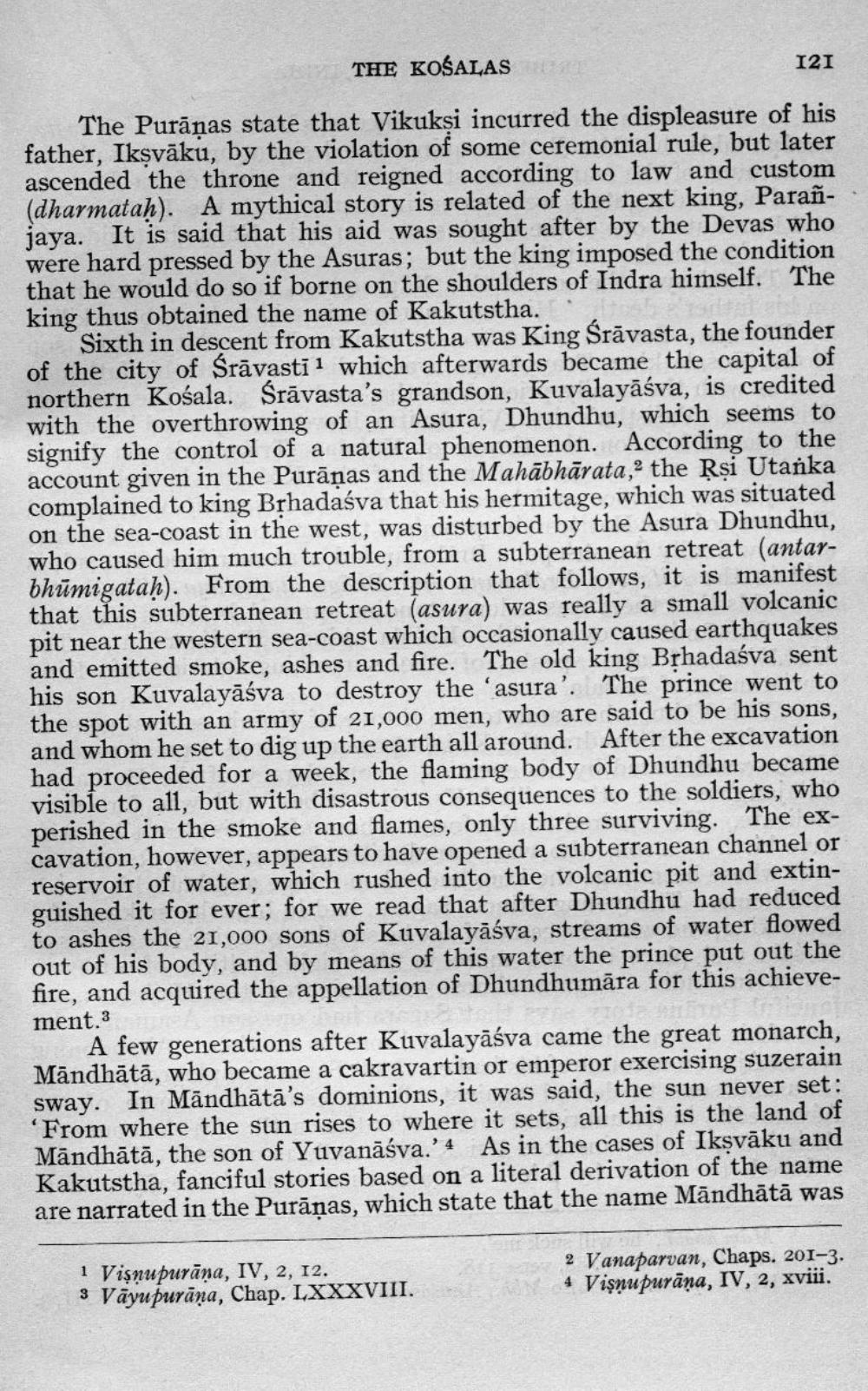________________
THE KOŠALAS
I2I
The Purāņas state that Vikukşi incurred the displeasure of his father, Iksvāku, by the violation of some ceremonial rule, but later ascended the throne and reigned according to law and custom (dharmatah). A mythical story is related of the next king, Parañjaya. It is said that his aid was sought after by the Devas who were hard pressed by the Asuras; but the king imposed the condition that he would do so if borne on the shoulders of Indra himself. The king thus obtained the name of Kakutstha..
Sixth in descent from Kakutstha was King Śrāvasta, the founder of the city of Srāvasti 1 which afterwards became the capital of northern Kośala. Śrāvasta's grandson, Kuvalayāśva, is credited with the overthrowing of an Asura, Dhundhu, which seems to signify the control of a natural phenomenon. According to the account given in the Purāṇas and the Mahābhārata, the Rși Utanka complained to king Brhadaśva that his hermitage, which was situated on the sea-coast in the west, was disturbed by the Asura Dhundhu, who caused him much trouble, from a subterranean retreat (antarbhūmigatah). From the description that follows, it is manifest that this subterranean retreat (asura) was really a small volcanic pit near the western sea-coast which occasionally caused earthquakes and emitted smoke, ashes and fire. The old king Brhadaśva sent his son Kuvalayāśva to destroy the ‘asura'. The prince went to the spot with an army of 21,000 men, who are said to be his sons, and whom he set to dig up the earth all around. After the excavation had proceeded for a week, the flaming body of Dhundhu became visible to all, but with disastrous consequences to the soldiers, who perished in the smoke and flames, only three surviving. The excavation, however, appears to have opened a subterranean channel or reservoir of water, which rushed into the volcanic pit and extinguished it for ever; for we read that after Dhundhu had reduced to ashes the 21,000 sons of Kuvalayāśva, streams of water flowed out of his body, and by means of this water the prince put out the fire, and acquired the appellation of Dhundhumāra for this achievement.3
A few generations after Kuvalayāśva came the great monarch, Māndhātā, who became a cakravartin or emperor exercising suzerain sway. In Māndhātā's dominions, it was said, the sun never set: From where the sun rises to where it sets, all this is the land of Māndhātā, the son of Yuvanāśva.' 4 As in the cases of Ikşvāku and Kakutstha, fanciful stories based on a literal derivation of the name are narrated in the Purāņas, which state that the name Māndhātā was
1 Vişnu purāna, IV, 2, 12, 3 Vāyu purāna, Chap. LXXXVIII.
2 Vanaparvan, Chaps. 201-3. 4 Vişnupurāna, IV, 2, xviii.




